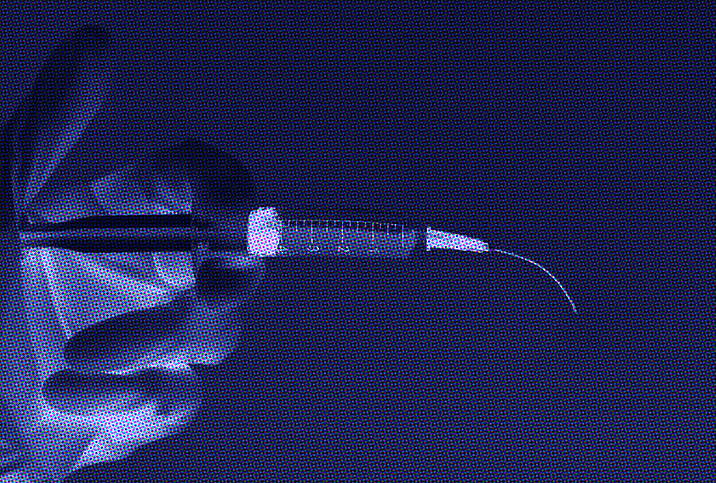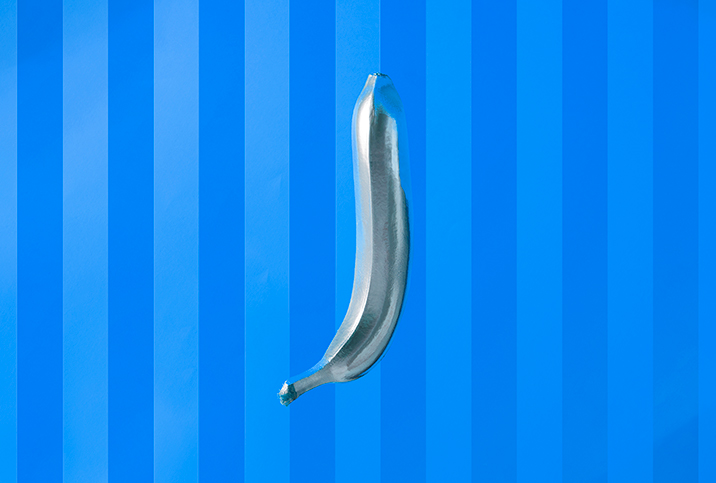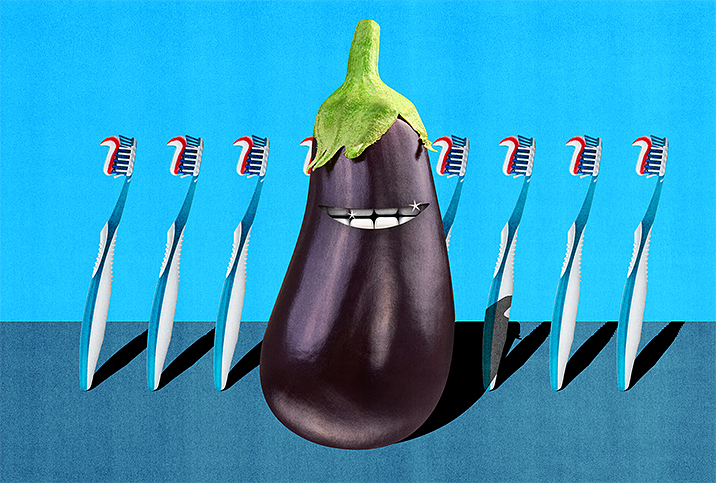What to Do if Your Partner Has Erectile Dysfunction

If your partner has trouble achieving or maintaining an erection, it may be difficult not to take it personally. You might worry they're not attracted to you, that you're doing something wrong or even that they've been unfaithful. None are likely true, as erectile dysfunction (ED) usually has nothing to do with the person's partner or relationship.
So what can you do if your partner has erectile dysfunction, and more importantly, how can you help?
"Most of the time, it is an underlying problem that's very normal as you age. It has nothing to do with how turned on or attracted you are to your partner," said Jagan Kansal, M.D., a Chicago-based urologist and the founder of Down There Urology. "If there's an underlying problem, no matter how much you're attracted, the mechanism of getting an erection just changes."
Usually, addressing the underlying condition, which can be physical or psychological, improves erections. Even when it doesn't, ED itself is treatable with help from a physician.
If your partner's ED is causing distress, understanding its causes can prepare you to talk to them about finding a solution together.
How do erections work?
The penis contains two chambers, the corpora cavernosa, filled with erectile tissue mainly composed of muscle, per Weill Cornell Medicine. In order to get and maintain an erection, chemicals released in the brain must signal nerves to release another chemical, nitric oxide, which relaxes the muscles of the corpora cavernosa. At the same time, blood rushes into the penis through the penile arteries, and a valve mechanism closes to hold the blood in place.
"The analogy I give patients for how it works is it's like filling a bathtub. In order to fill that tub, you have to put in the stopper, turn on the water and fill up the tub. Then when you finish, you pull out the stopper," said Michael Werner, M.D., the medical director and founder of Maze Sexual & Reproductive Health, based in New York City and Purchase, New York. "So, you have to both have a good inflow and a good trapping mechanism to get and maintain a good erection."
More About Managing Your Erectile Dysfunction
- A Dating Guide for Erectile Dysfuntion: Breaking down taboo subjects is the first step to a fulfilling sex life.
- A New Treatment for ED: Eddie by Giddy™ is an innovative FDA-registered Class II wearable medical device created for the treatment of ED and has been clinically proven to work. Eddie® is designed to be comfortable and effective.
- Diabetes, Diet & ED: Keeping blood sugar in check by watching your diet can also help with erective function.
What causes erectile dysfunction?
ED is defined as persistent difficulties getting or maintaining erections, Werner said. Its causes usually stem from physical issues, especially in older guys, but psychological and lifestyle components can play a part, too, particularly in men ages 35 and younger.
Vascular issues
Vascular problems are the most common causes of ED, Kansal and Werner said, the most prevalent being venous leakage.
"Imagine your penis as a flat tire, right?" Kansal said. "If air is coming in, but you have a flat tire, and it's leaking out the hole, you're never going to get a hard tire. It's the same situation when you have a venous leak and erectile dysfunction. No matter how much blood flow, no matter what medications we give you to increase the blood flow in your penis, if you have that venous leak, it's always going to leak right back out."
Anything related to blood flow can cause a venous leak, Kansal said, including diabetes, high blood pressure and high cholesterol. More rarely, Peyronie's disease—curvature of the penis caused by plaque buildup—and penile injuries are to blame.
"All those things can cause a venous leak because the mechanism of those veins closing off changes," Kansal explained.
Other vascular issues that can contribute to ED include clogged or constricted blood vessels, which can result from smoking and conditions such as heart disease or artery damage, often caused by diabetes.
Hormone imbalances
Several hormones are involved in sexual and reproductive function, but testosterone is the most important for men. About 1 in 3 men with ED also have low testosterone (low-T), according to Cleveland Clinic, and testosterone tends to diminish naturally with age. Importantly, low-T doesn't always cause ED, the same way having a lot of testosterone doesn't necessarily lead to better erections.
A simple blood test can indicate if low-T is a potential contributing factor. If so, hormone replacement therapy (HRT) can help.
Neurological damage
The second leading cause of ED is neurological, Werner said.
"It could be anything that affects the nerves. So it could be a surgery like a radical prostatectomy. It can be M.S. [multiple sclerosis], Parkinson's, diabetes," he explained. "Diabetes is really terrible for erections because it affects both the nerves and the vasculature. That's why men with diabetes have erection issues at much younger ages."
Medications
Some medications, including selective serotonin reuptake inhibitors (SSRIs), certain blood pressure medications, antihistamines, testosterone blockers, prescription pain relievers and medicines used to treat prostate problems, may diminish libido and contribute to ED.
Age
ED is a natural part of getting older, Werner said. About 40 percent of men in their 40s and 50 percent of guys in their 50s experience some form of ED, and the prevalence increases steadily with age. He explained that the arteries and veins become weaker and less functional as you get older. Additionally, chronic conditions that can affect the penis, such as heart disease, diabetes and Alzheimer's, are more common in older people.
"If you're over 35, you can assume that there's at least a significant physical component," Werner said.
Psychological factors
For people under 35, psychological factors are more likely to blame. These can include mental health conditions such as depression and anxiety or problems such as stress and performance anxiety.
"I tell patients all the time that once you start thinking about your penis, it's not going to work," Kansal said.
Anxiety and stress create tension and vasoconstriction, Kansal explained, which inhibit the arteries from opening and the penis from filling with blood.
How to help your partner with erectile dysfunction
Kansal reiterated that ED isn't anyone's "fault" and usually doesn't reflect a partner's level of attraction or satisfaction with the relationship. Knowing that, it's best to have a frank conversation with your partner about their difficulties. Bear in mind they may feel ashamed or anxious.
"I tell couples all the time, if you're not open and honest with your partner about sexual life, it's never going to get better," Kansal said. "It's a delicate and sensitive topic, but I think it's really important for couples to be open with each other."
Werner agreed, saying it's important for men to realize ED is normal and many solutions are available. The sooner you and your partner talk to a doctor, the easier it will be to find a treatment that works.
"Whenever men are so upset that they have this, I'm like, 'You're not surprised that you need reading glasses between 40 and 44. You will at some point have erection issues if you're lucky enough to live long enough,'" he said. "We just need to manage it, and it's very manageable."
Werner added that it could also help to reframe your perceptions around sex while seeking treatment for ED. There's much more to it than penetration and climax, and erections are optional. Most people with clitorises can achieve an orgasm without penetration—and toys can do the job for those who need it, and even men can get pleasure without getting or staying hard.


















